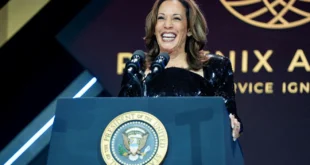
In the tumultuous arena of American politics, few figures generate as much controversy and division as Senator Ted Cruz. For many progressives, Cruz embodies everything they find problematic about modern conservatism: staunch opposition to progressive policies, a combative rhetoric style, and a deep alignment with the Trump-era Republican agenda. Yet, despite this widespread animosity, Cruz has consistently demonstrated that he is, in many ways, an effective and well-suited representative for his home state of Texas. Understanding why Cruz remains a powerful political figure in Texas requires a deeper look at his track record, his alignment with Texas values, and his impact on both state and national politics.
The Controversial Figure
Ted Cruz’s career has been marked by a series of high-profile moments that have polarized opinion. Elected to the U.S. Senate in 2012, Cruz quickly established himself as a fierce advocate for conservative principles. His role in the 2013 government shutdown, where he led efforts to defund the Affordable Care Act, and his vocal opposition to the Obama administration’s policies drew significant criticism from progressives and centrist Republicans alike. His alignment with Donald Trump and his support for many of the former president’s controversial positions further fueled the ire of the left.
Cruz’s positions on issues such as climate change, healthcare reform, and immigration have made him a lightning rod for criticism. His skepticism about climate science, vocal opposition to the Green New Deal, and hardline stance on immigration are diametrically opposed to the progressive agenda. For many on the left, Cruz represents the antithesis of their policy goals and a threat to the progress they envision for the country.
A Strong Advocate for Texas Values
Despite the widespread disdain from progressives, Cruz has proven himself to be a formidable representative of Texas values. Texas is a state with a unique political and cultural landscape that often contrasts sharply with the more progressive tendencies found in other parts of the country. Cruz’s staunch conservatism resonates with many Texans who prioritize limited government, lower taxes, and traditional values.
Cruz’s advocacy for Texas’s interests is evident in his work on issues that directly affect the state. His efforts to secure federal support for Texas during natural disasters, such as hurricanes and floods, have been crucial in providing timely aid and relief. Cruz has also been a strong proponent of energy policies that support Texas’s dominant oil and gas industry. His advocacy for reducing regulatory burdens on energy production aligns with the interests of a significant portion of Texas’s economy and workforce.
Additionally, Cruz has been a vocal advocate for securing the U.S.-Mexico border and reforming immigration policies. Given Texas’s geographic location and the impact of immigration on the state, these positions resonate with many voters who see them as vital to maintaining border security and protecting local jobs.
Effective Legislative Work
While Cruz is known for his outspoken rhetoric, he has also demonstrated legislative effectiveness in several key areas. His ability to navigate complex political landscapes and leverage his position as a U.S. Senator has allowed him to influence policy and secure victories for Texas.
For example, Cruz played a significant role in advancing the Tax Cuts and Jobs Act of 2017, which included provisions that benefited many Texans through reduced taxes and increased economic growth. His work on the legislation reflects his commitment to conservative economic principles and his ability to deliver tangible results.
Furthermore, Cruz’s involvement in the confirmation of federal judges has been a critical aspect of his tenure. By supporting and advocating for conservative judicial nominees, Cruz has helped shape the federal judiciary in a way that aligns with his ideological beliefs and those of his constituents.
Navigating National and State Politics
Cruz’s ability to balance national political dynamics with the specific needs of Texas is a testament to his effectiveness as a senator. His national profile, amplified by media appearances and his role in high-stakes political battles, has allowed him to draw attention to issues important to Texans on a broader stage. This visibility can translate into increased influence and resources for Texas, even if it comes with a degree of controversy.
Moreover, Cruz’s resilience in the face of criticism and his unwavering commitment to his principles have earned him a loyal base of supporters in Texas. His ability to connect with and advocate for his constituents, despite national polarization, underscores his role as a representative who understands and champions Texas’s unique position in American politics.
Conclusion
Ted Cruz may be a deeply polarizing figure, particularly among progressives, but his tenure as a U.S. Senator reflects a broader reality: he is a representative who aligns closely with the values and priorities of his Texas constituents. His advocacy for conservative principles, effective legislative work, and commitment to addressing Texas-specific issues underscore why he remains a significant and influential figure in Texas politics. While his positions and rhetoric may not resonate with everyone, his role in shaping policy and representing Texas’s interests cannot be overlooked. For many Texans, Cruz’s tenure has reinforced his status as a prominent and effective voice for their concerns and priorities in the U.S. Senate.



Excellent write-up. I absolutely appreciate this site.
Continue the good work!
Appreciate this post. Let me try it out.